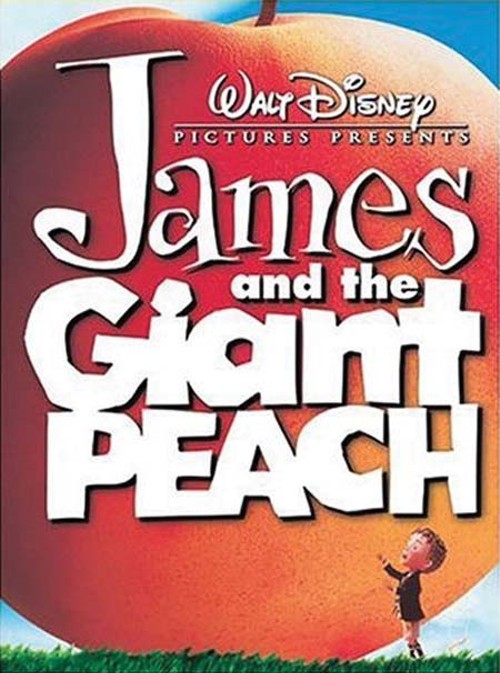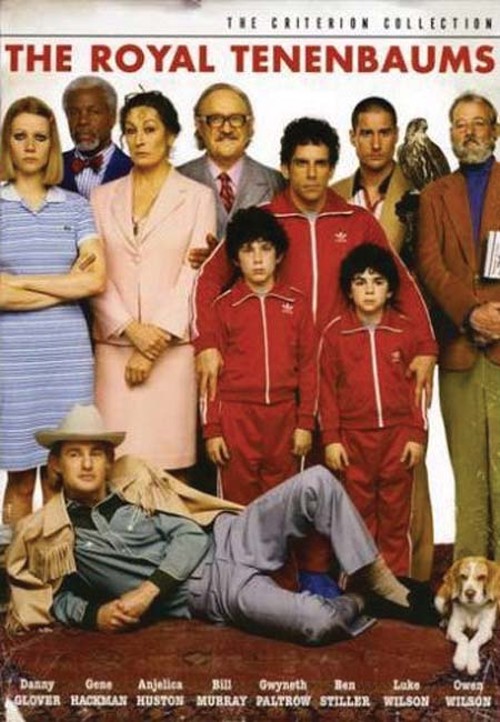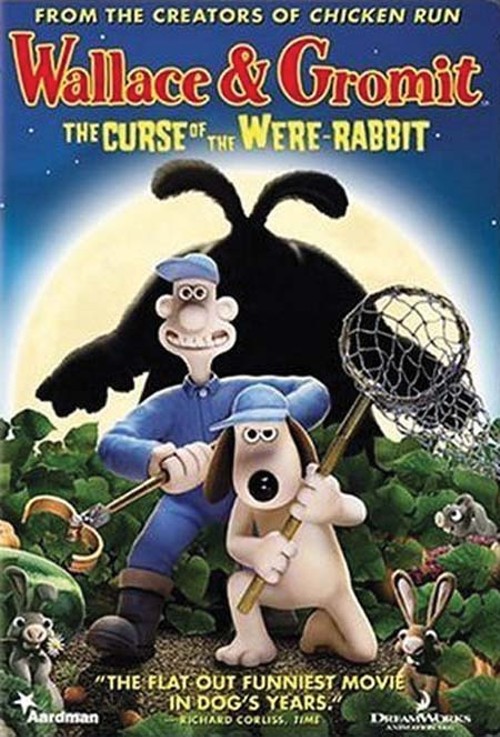Fantastic Mr. Fox
Wes Turn: Director Wes Anderson finds a perfect match in the hilarious stop-motion of Fantastic Mr. Fox.
By Scott Renshaw @scottrenshawWes Anderson, at his best and his worst, has always been a filmmaker with a fondness for hermetically sealed worlds of his own creation. Why it took him 15 years to take a stab at animation, I’ll never know.
Of course, Fantastic Mr. Fox isn’t Anderson’s first flirtation with stop-motion, if you’ll recall the Henry Selick-created undersea sequences in his charming The Life Aquatic with Steve Zissou. Anderson clearly understood the power of fanciful imagery in that case, but at times, his live-action films haven’t managed to find a real-world anchor for his oddball characters.
Fantastic Mr. Fox somehow manages the opposite trick: With wonderful playfulness, Anderson gives a completely manufactured world of both heart and genuine humanity.
In theory, Anderson and co-scripter Noah Baumbach are adapting a lesser-known Roald Dahl story about a fox (George Clooney) who finds himself the target of the three farmers from whom he steals his meals.
But there’s considerably more backstory to Mr. Fox in this version. Convinced by his wife (Meryl Streep) to give up his poultry-filching ways and settle down into family life, Mr. Fox has become that most neutered of God’s creatures—a newspaper columnist. So when he spots the farms of Boggis, Bunce and Bean from the window of the family’s new treetop house, it’s not startling that he plans a few furtive trips for the purpose of livestock acquisition—a choice that has consequences when the three farmers declare war on the thieving fox.
Anderson’s films have generally dealt with the love-hate tug-of-war of family relations, and while he tones down the “hate” part of the equation for all-ages audience consumption, he’s still dealing with recognizably human dysfunction. The Foxes’ adolescent son, Ash, is a sullen kid with a fondness for wearing a cape and a deep jealousy of the athletically gifted cousin, Kristofferson (Eric Anderson), who comes to stay with them. Mr. Fox finds himself almost as incapable of addressing his son’s dissatisfactions as he is with addressing his own. Anderson and Baumbach take on these characters with a low-key good humor, finding laughs in everything from Mr. Fox’s cocky clickand-a-whistle “trademark” to a character’s deep sigh of resignation.
But mostly, they find laughs in the deadpan juxtaposition of their content with the genre in which they’re working. The young animals’ overly complicated schoolyard game of “whack-bat”—think cricket as played with a flaming pine cone—proves just as absurd in action as it seems from a diagrammed description. The occasional random shift of the characters’ behavior from domesticated to completely animalistic—the frantic devouring of a breakfast, or an argument turned into an exchange of snarls—works both as a gag and a reinforcement of the story’s notion of not pretending to be what we aren’t. And few concepts this movie year are as inspired as Anderson and Baumbach’s decision to substitute the word “cuss” anywhere an adult-oriented film might have included an actual profanity (e.g., “a real cluster-cuss”).
The script is terrifically entertaining, but Anderson’s also savvy enough to identify exactly how to use the stop-motion to make the story even more appealing than it might have been with another form of animation. Something about these critters proves a perfect match for Anderson’s sensibility, like the sudden change of characters’ eyes to big x’s when they’re rendered unconscious. The action sequences—from the Foxes’ acrobatic first farmhouse breakin to their counter-attack on the farmers’ siege to Mr. Fox’s showdown with a dirty rat (Willem Dafoe) rendered in freezeframe tableaux—have a goofy kineticism unique to this style. The herky-jerky movements may be more reminiscent of Rudolph the Red-Nosed Reindeer than Coraline, but in Fantastic Mr. Fox, that throwback vibe is almost irresistibly charming.
The most satisfying thing of all about the film, though, may be how surprisingly accessible it makes a director who has previously seemed like such a specific, acquired taste. Perhaps because he trusts the animated figures to provide all the funkiness that was required, Anderson devotes his energies as a writer and director to creating characters—wonderfully voice-performed all around—whose quirks feel unforced. Sure, it’s only a minor thematic variation on the “be true to yourself” premise that anchors 90 percent of all 21stcentury kid-flicks, but Anderson brings it to life in a completely unique way.
Welcome to the world of feature animation, Wes. What took you so long?
FANTASTIC MR. FOX
George Clooney
Meryl Streep
Jason Schwartzman
Rated PG
Try These
| James and the Giant Peach (1996) Paul Terry Miriam Margolyes Rated PG |
|
| The Royal Tenenbaums (2001) Gene Hackman Anjelica Huston Rated R |
|
| The Life Aquatic with Steve Zissou (2004) Bill Murray Owen Wilson Rated R |
|
| Wallace & Gromit: The Curse of the Were-Rabbit (2005) Peter Sallis Ralph Fiennes Rated G |
Speaking of Feature Review, movies, Animation
-
Robin Hood
We Wuz Robbed: Ridley Scott’s Robin Hood can’t deliver promise of a story behind the legend.
- May 12, 2010
-
Iron Man 2
Stark Contrast: Iron Man 2 leaves you wanting more of the guy who made the original fly.
- May 6, 2010
-
Babies
Natal Habitat: Babies observes cultural differences—and overly precious cuteness.
- May 5, 2010
- More »
More by Scott Renshaw
-
Feature film review: THE BEAST
A filmmaker's compelling ideas get a bit tangled in references to his creative influences.
- Apr 17, 2024
-
Faces of Salt Lake County book and portrait reception
Images and personal stories in a new book reveal local demographic diversity
- Apr 17, 2024
-
Film Reviews: New Releases for April 12
Civil War, Escape from Germany, Coup de Chance, Hundreds of Beavers, La Chimera, Sting
- Apr 11, 2024
- More »
Latest in Film Reviews
Readers also liked…
-
Power Plays
Two satirical comedies explore manipulations and self-delusions by those with power.
- Aug 31, 2022










